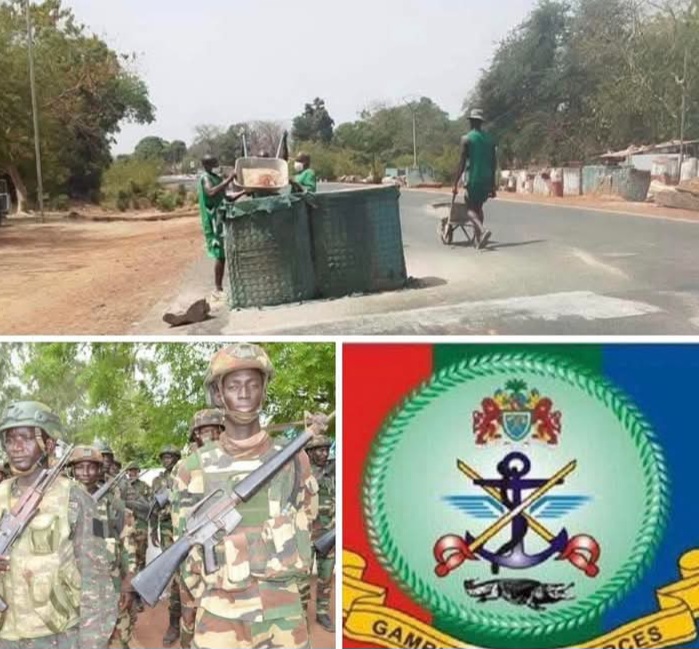
Baboucarr Nyang Human Rights Activist MSc Development Finance
The Gambia suffered under 22 years of tyranny characterized by mismanagement, human rights abuses, and low economic growth. When a new government took office in 2016, there was hope for a better future for young people. Unfortunately, it appears that this hope has been dashed, as many youth are once again risking their lives in search of better opportunities elsewhere.
The youth population in Gambia is facing a serious issue of illegal migration in recent years. Many young Gambians are risking their lives in search of a better future, and opportunities, and to escape poverty. This has resulted in perilous journeys that have claimed many lives.
Many young Gambians see illegal migration or “backway” as the only way to escape poverty and unemployment, which are pressing issues in the country. The prospect of finding employment, education, and economic stability in Europe, particularly in countries like Spain, Italy, and Germany, is a strong motivator. However, these journeys are extremely dangerous, as they often involve risky boat crossings, human trafficking, and exploitation.
One of the main concerns regarding illegal migration is the perilous boat journey that many Gambian youth undertake without proper documentation, leaving them vulnerable to abuse, violence, and human rights violations. The Mediterranean Sea, known as one of the deadliest Migration routes worldwide have resulted in numerous deaths, including many Gambians. Illegal migrants may become involved in human trafficking, where they face abuse, extortion, and perilous living conditions.
The illegal migration of young Gambians has significant economic and social implications for their home country. The loss of the youth workforce through migration creates a “brain drain” effect that deprives Gambia of its future leaders, professionals, and labour force. This has a direct impact on the country’s development and economic growth. Additionally, the families left behind by the migrants are faced with emotional and financial challenges.
The underlying issues that need to be addressed by The Government of The Gambia
-The Gambia government needs to understand the underlying factors that drive illegal migration, including economic hardship, political instability, conflict, lack of opportunities, and environmental factors. Addressing these root causes is essential to reducing migration pressures.
– The Government needs to come up with policies and initiatives that promote economic development and job creation within the country. A stronger local economy can reduce the incentive for people to seek opportunities abroad.
– The Importance of investing in education and skills training to empower citizens with the tools to access better job opportunities at home and lower the cost of university and Vocational Training centres like GTTI, GTMI, and GHTI, so that it could be accessible by every young person.
– The significance of good governance, rule of law, and anti-corruption measures to create a more stable and secure environment. This can deter people from leaving due to governance, political instability, or corruption.
– Strengthening border security and law enforcement to deter illegal immigration and human trafficking. This should be done while respecting human rights and international agreements.
– launching information and awareness campaigns to educate citizens about the risks and challenges of illegal migration, as well as legal pathways for migration. This could be done by using the National Center for Civic Education (NCCE)
– Engaging in diplomatic efforts and bilateral agreements with destination countries to manage migration flows, protect the rights of migrants, and facilitate legal pathways for migration. The global governance on migration should be a priority for the Gambia Government in driving policies that will help make its deportation.
– Encourage policies and programs to support the reintegration of returning migrants into society and the economy. Many individuals who migrate and return face challenges, and support services can be beneficial.
**The Way Forward**
Ultimately, addressing illegal migration requires a combination of policies and actions that address its root causes, promote economic and social development, enhance border security, and protect the rights and well-being of all citizens, including potential migrants by creating Jobs and Livelihood.
Illegal migration remains a significant challenge for Gambian youth, but it is a complex issue with deep-rooted causes. The collaborative efforts of the government, civil society, and international organizations are essential in addressing this problem. Long-term solutions will require investments in education, job creation, and improved living conditions in Gambia, providing the youth with hope for a better future at home.
In the coming years, stakeholders must continue their commitment to finding solutions to the issues of illegal migration facing Gambian youth. Only through a multi-faceted approach can the country hope to provide its youth with alternatives to the perilous journey of illegal migration and secure a brighter future for all its citizens.
Baboucarr Nyang
Human Rights Activist
MSc Development Finance




